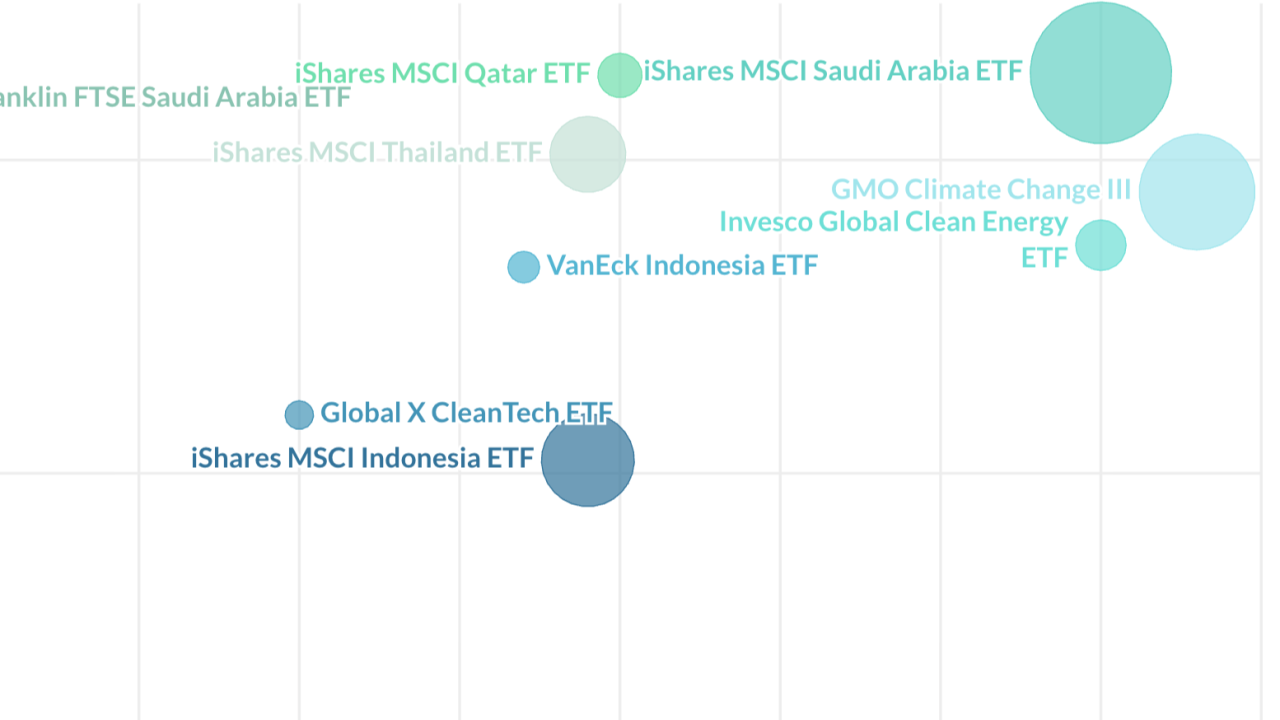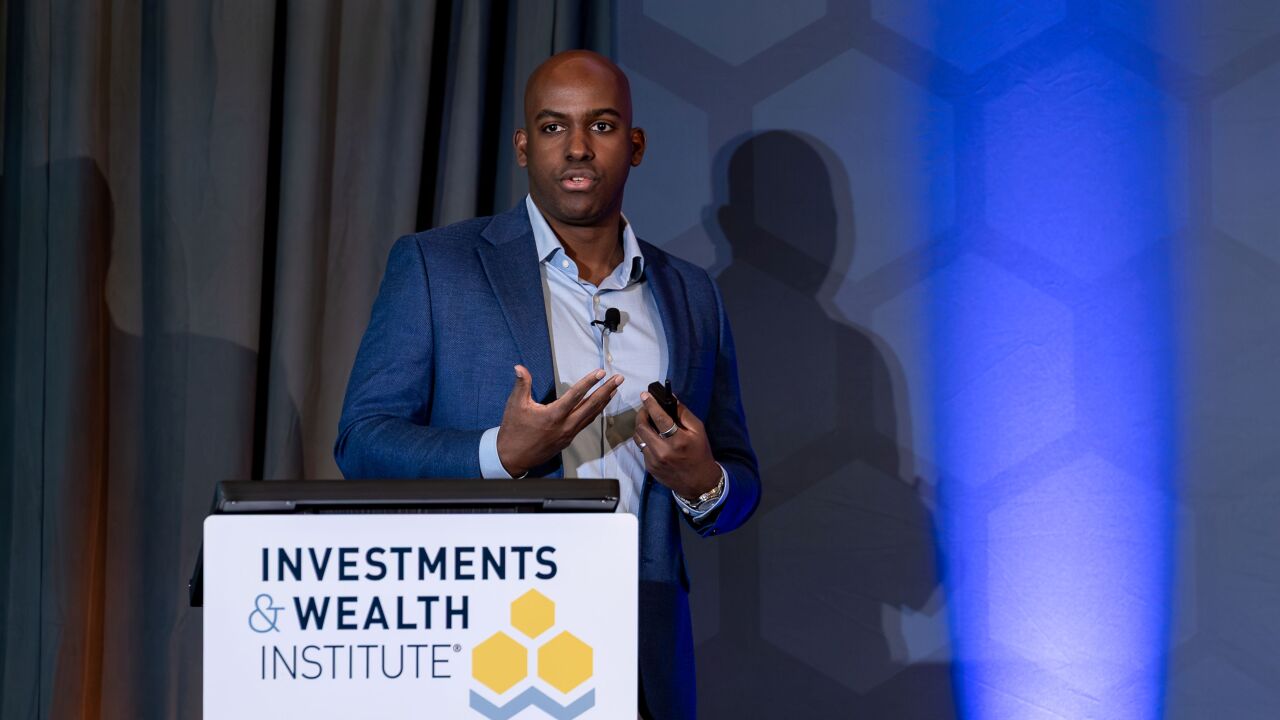With his Manchester United career at an end, Paul Pogba could go anywhere this summer.
The World Cup-winning French midfielder won’t say whether he wants to play football in Paris, Madrid or Turin next, but he does have a plan for the future: “I will be investing in myself.”
Pogba, 29, has been preparing for an eventual life beyond the pitch. In this spare time, he’s watching YouTube videos on financial investments, reading wealth guidebooks and studying the speeches of billionaires. He names Floyd Mayweather, the boxing promoter and undefeated five-division world champion, as a “legendary” business inspiration.
He’s also spending an undisclosed sum on a stake in Wahed Invest, an Islamic finance startup based in New York that aims to offer ethical savings for under-served communities. “It’s to help those people invest in the halal way,” he says.
Pogba was initially approached to be a paid brand ambassador for the startup. But after hitting it off with founder Junaid Wahedna at a meeting in Manchester last September, the footballer also offered to back them. “It was something that came from my heart, to be honest,” he told Bloomberg News on May 11, fresh from training and treatment for his calf injury and a few weeks before it was confirmed he’d be leaving Manchester United at the
Islamic banking is booming worldwide, with the industry now a $2.7 trillion behemoth, according to an
As a young, Black, Muslim millionaire, Pogba hopes he’ll be able inspire others from disadvantaged backgrounds to manage their money better — at a time when startups run by non-White founders
Wahedna said in an interview that Pogba was “a high performance leader in his industry that fits with our brand and what we’re trying to achieve.”
On the pitch, Pogba is one of the most gifted players of his generation. His transfer fee when he moved from Juventus back to Manchester United in 2016 was estimated at £89 million ($113 million).
It’s a world away from the eastern suburbs of Paris, where he grew up with his mother, two brothers and two cousins. His parents, immigrants from Guinea, had divorced. “I learned that to earn your money, you need to work hard,” he says. Early in his career, he saved up for two months and sold his clothes to buy a pair of Nike boots that he cherished — even though they ended up being too small.
Pogba holds off a challenge from Marcus Tavernier of Middlesbrough during a match at Old Trafford. Photographer: Alex Livesey/Getty Images“I’m not afraid to not have money because before I didn’t have money,” he said. Pogba is aware he’s in a short-lived, risky job, and advises other players to lay the groundwork for life after football: “Don’t be afraid of investing, and just live with a short amount.”
There’s a responsibility that comes with being a high earner, he believes, both to those around him and the 54 million people who follow him on Instagram. “People see that you have money, so they will see you as cash,” he says. It’s made him a target: for new “friends” attracted by his wealth, and for burglars, who broke into his home earlier this year.

It’s taken Pogba some time to adjust to his wealth, and he doesn’t always get it right. Last year, his partnership with the Cryptodragons NFT platform saw him promoting the project on social media by calling himself “Father of Dragons.” At the time, the digital asset had sold for 35 Ethereum, or just over $160,000 at the time. Now, some sales are completing in the low tens of dollars. Pogba declined to talk about crypto, but stressed that some players invest in it, others in tech startups and real estate: whatever is their “heart project.”
Another lesson came after France’s defeat in extra time to Portugal in the Euro 2016 final. To console himself, Pogba lived out his American dream on a holiday in Miami and Los Angeles. The private jets, restaurants and clubbing resulted in a total bill of 100,000 euros ($107,000), he remembers.
“I was really shocked. I said, ‘Wow, this is a lot of money that I spent in one month.’ And from that day I said ‘no.’ I stopped,’’ he said. “I will not spend that much money ever again.”
Some of this sense of responsibility came from his agent Mino Raiola, who died in April at the age of 54. Pogba speaks of him fondly, saying Raiola was the first person to bring up investments and explain how to “be careful” with money. “He left me something very, very important, that I know I will give to my kids too,” Pogba says.
Marlon Fleischman, who represents elite footballers as the managing director of Unique Sports Group, says there has been “a huge shift” in awareness and ambition from today’s players when it comes to building a portfolio for their futures. Five or ten years ago, his conversations with clients were “very property-led,” but now he can expect to spend a significant chunk of time discussing crypto, the metaverse and startups.
“The newer generation of players are aware of so much more from entrepreneurs, from seeing it on social media or influencers, and understand there is more than the traditional means now of investments,” Fleischman says in a telephone interview.
Mathieu Flamini, the former Arsenal midfielder, is chief executive officer at
Many athletes are no longer content with standard sponsorship deals where they simply get paid an appearance fee. Increasingly, they want to be a part of the business, and see returns. “These guys now — they’re smarter. They’re more aware of life around them,” Fleischman says.
Fleischman’s role is also evolving, and he sees himself as a gatekeeper, especially as the average footballer gets inundated with investment proposals. Typically, a footballer will also have an accountant and financial adviser as part of their team — similar to the approach that Pogba has taken.
Back in Manchester, Pogba is calling for better financial education for players. “We train every day, to make a pass, to shoot. There should be some training on how to manage your money,” he says.
When asked whether he would ever invest in a football club, Pogba laughs. “I don’t think I have enough money for that. Not yet.”








